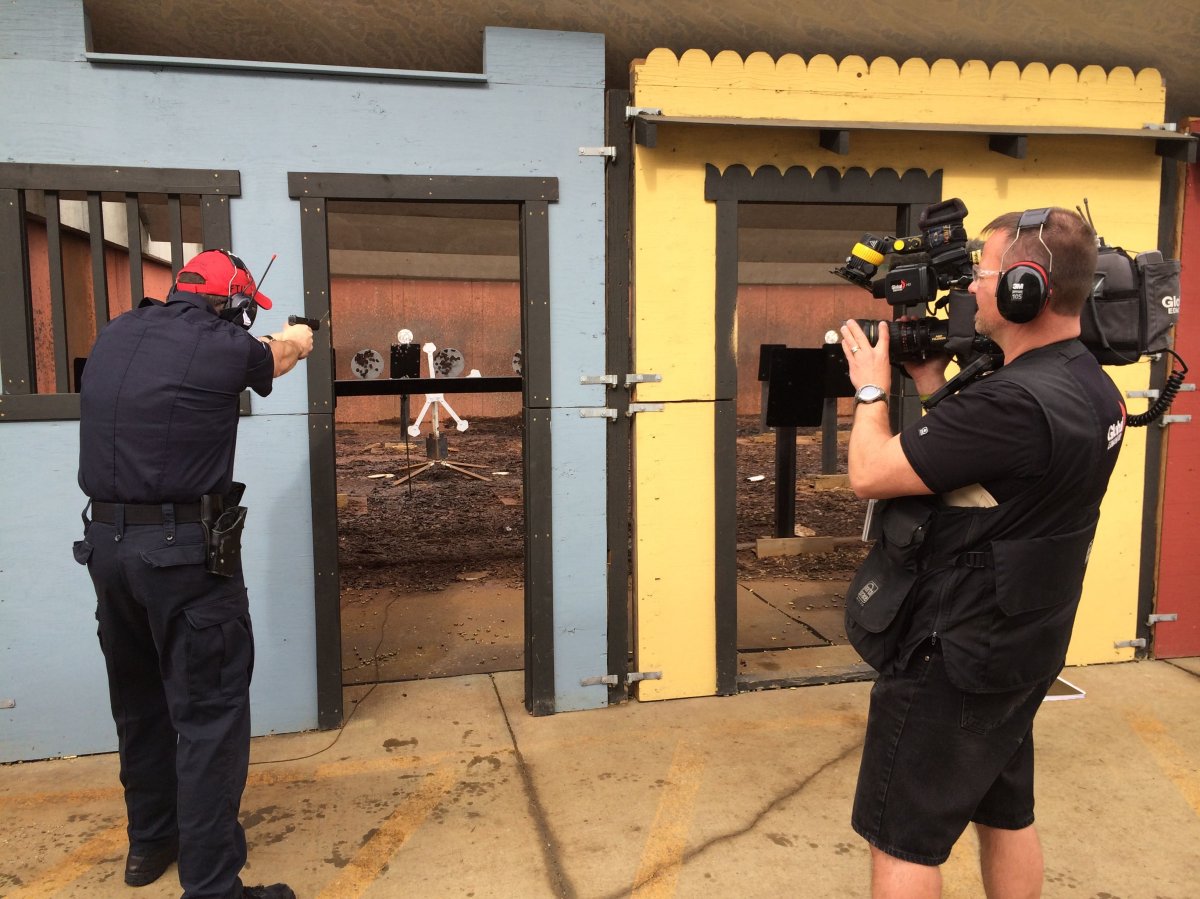WATCH ABOVE: A unique, home-grown program is helping front-line emergency workers ease back into work after trauma and get the help they need. Kendra Slugoski reports.

EDMONTON — Large crowds, the people and the noise, were enough to immobilize police officer Const. Doug McLeod. Soon he found everyday duties nearly impossible.
“I had difficulty in every facet of my life,” he shared. “It was even simple tasks that I would normally do as a part of my job that I didn’t feel like I has the energy or desire to do, like charging my flash light or polishing my boots.”
“In my case it was about five months before I really hit bottom I guess and sought help.”
After eight months off, Const. McLeod wanted to return to work, but he didn’t know how. He knew he would need tailored training, something that would help him face his specific demons.
His co-workers developed a unique reintegration program. At first it was gradual. Not yet ready to face the public, McLeod started working behind-the-scenes in an office position. Once he was comfortable with police culture, he moved back to patrolling the streets.
He also spent a lot of time getting to know his gun again.
“Being around the gun was my big issue.
“Just having confidence in holding it and manipulating it, being around it, hearing the sound of gunfire, seeing shooting out on the range. I spent a lot of time on that piece.”
On Dec. 23, 2012 Mcleod came face-to-face with a gun, bullets whizzing past him. He remembers everything about that night; just coming back on night shift and feeling tired.
“It was cold, snowy,” he recalled.
McLeod and his partner were on their way to grab a coffee when they were called to a traffic stop.
“The person we were pulling over got out of his vehicle and shot at us.”
McLeod went back to work the next day and the shooting suspect was found Christmas Day, holed up in a Redwater motel room.
READ MORE: Is there enough mental health support for first responders?
As the months passed, McLeod spiralled into depression and contemplated suicide. He left work and went through intensive therapy.
Being away from the job wasn’t easy for him.
“When you’re in this type of profession it very much becomes part of your personality,” explained Sgt. Glen Klose. The downtown patrol Sgt. helped introduce McLeod back into policing.
He calls the reintegration process an eye opener. He says occupational therapists and psychologists do amazing amounts of work with sick officers, but can only take them so far.
“Things hit us out of the blue.
“We do prepare for the worst – we expect the best – but all of a sudden something impacts us that we didn’t expect.”
Any time there is an officer-involved shooting, the police officer must undergo mandated firearms training. Forty Edmonton Police Service members have completed the short-term program.
Since the one-of-a-kind long-term reintegration program began in 2013, a handful of other members have also been helped.
Alberta Health Services is taking notice.
Several front-line paramedics have been learning from police. It’s no secret that trauma of cumulative calls sometimes leads to depression or Post Traumtic Stress Disorder.
READ MORE: 13 first responders, 13 suicides, 10 weeks
“First they need to understand that they can come back to work,” said Dale Weiss, executive director of EMS for the Edmonton Zone. “They need to understand how they can come back to work.”
Weiss says staff are impacted by calls the average person doesn’t see.
“Kids, babies… major motor vehicle accidents are traumatic.”
He is hoping paramedic peers trained by police will prompt others to seek help. If someone knows they will eventually be back at work, it could convince them to ask for support in the first place.
“There is an option to come out the other side. You can be reintegrated back into the workforce.”
McLeod says the threshold for paramedics may be more difficult to recognize. He says it’s imperative colleagues look out for one another.
READ MORE: How to get help if you or someone you know has PTSD
By showing first responders and officers his treatment was not cookie cutter, McLeod hopes his story will help others feel safe.
“That’s the beauty of this program: it can be very individualized because it has to be.”
Getting back to work has always been his goal, he just needed to take his time.
“It feels really good. A sense of accomplishment, a sense of pride. It gives me a sense of purpose.”



Comments